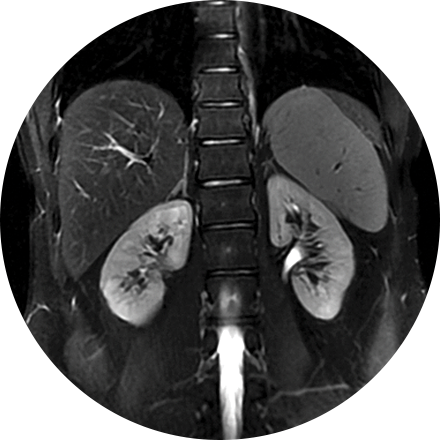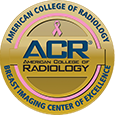
Abdominal imaging addresses the health of all organs in your abdomen and pelvis, including the liver, gall bladder, bile ducts, spleen, pancreas, adrenal glands, kidneys, stomach, small and large intestine, aorta, inferior vena cava, male/female pelvic organs, bones and more.
Some Abdominal Imaging Procedures Include:
When a patient has chronic abdominal pain, bowel changes, reflux, unexplained vomiting, constipation, diarrhea, blood in the stool or cancer or tumors, a physician may request examination of the upper or lower gastrointestinal tract. The upper GI tract is the esophagus, stomach and first part of the small intestine. The lower GI tract is the large intestine (colon). Barium is an orally-ingested contrast used with fluoroscopy to image these organs in motion. This helps the physician gain an accurate understanding of the function and anatomy of those organs in the patient’s body.
These types of procedures treat blockages or narrowing of the bile ducts, sometimes caused by gallstones and leading to jaundice and severe inflammation or infection of the gall bladder. An interventional radiologist can perform a minimally invasive procedure (with imaging guidance and a contrast agent) that is appropriate for the pathology. The range includes draining of the bile, removal of gallstones, stent placement and decompression (of an inflamed gall bladder).
This is an accurate and noninvasive imaging procedure used to assess and evaluate certain gastrointestinal problems, such as inflammatory bowel disease (including Crohn’s Disease), infectious enteritis, lymphoma or tuberculosis. It also can be used in patients with gastrointestinal bleeding to determine if a small bowel polyp is causing the bleeding. Enterography may be performed using MRI or CT.
This specialty focuses on urinary tract and kidney disorders. Renal hypertension puts stress and increased pressure on the kidney and is a major cause of end-stage renal disease. Interventional radiologists can perform angioplasty and, if needed, stenting, to improve blood flow to the kidney. Balloon angioplasty and stenting has generally replaced surgery as the first-line treatment for renal arterial occlusions.
Colon cancer risk increases with age, especially for individuals over 50 years old. However it is worthwhile noting that the majority of all colon cancers occur in people who have no risk factors.
Virtual colonoscopy is a relatively new procedure that allows our highly skilled radiologists to recreate and evaluate the inner surface of the colon in a way that has never before been possible. It utilizes a combination of the latest CT technology and sophisticated image processing computers to generate images of the colon from start to finish. When the exam begins a small tube is placed in the rectum to allow for air to be introduced into the colon. You will be requested to hold your breath several times while the the "high speed spiral CT" rapidly scans your abdomen. It is a minimally invasive and painless test and takes approx 15 minutes. You will able to resume normal activity directly after the procedure.








